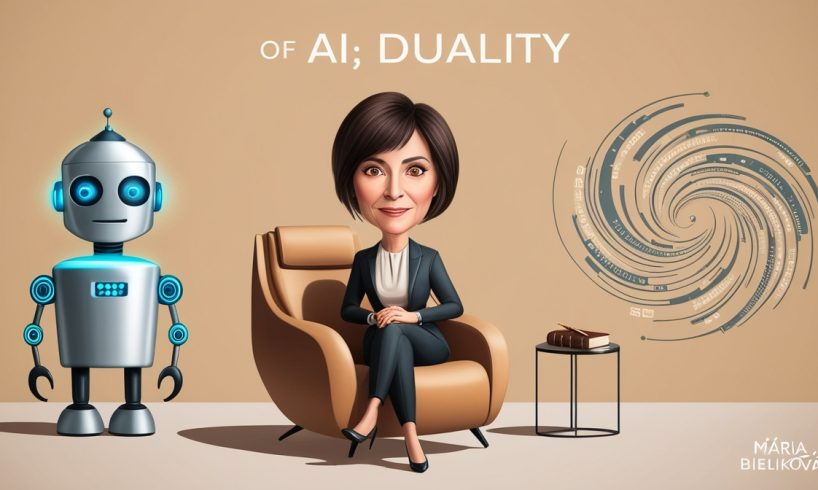
Artificial intelligence (AI) is transforming industries, societies, and everyday life at an unprecedented pace. While AI offers remarkable benefits, it also raises ethical concerns, potential risks, and unresolved questions about its future. In a thought-provoking Q&A session, Mária Bieliková, a leading AI researcher, shares her insights on the positive, negative, and unknown aspects of AI.
The Good: How AI is Making a Difference
Q: What are some of the most promising benefits of AI today?
Mária Bieliková: AI has the potential to enhance productivity, improve decision-making, and revolutionize healthcare, education, and transportation. For instance, AI-driven diagnostics can detect diseases earlier and more accurately than human doctors. In education, AI-powered tutoring systems personalize learning experiences, making education more accessible. Moreover, automation powered by AI is streamlining business processes, increasing efficiency, and reducing costs.
Q: Can AI foster innovation in unexpected ways?
Mária Bieliková: Absolutely. AI is not just about automation; it’s also about augmentation. It enables creativity by assisting in music composition, art generation, and scientific discovery. In research, AI can analyze vast datasets to uncover hidden patterns, accelerating breakthroughs in fields like medicine and climate science.
The Bad: Ethical and Societal Challenges
Q: Despite these benefits, AI has its downsides. What are the major concerns?
Mária Bieliková: One of the biggest concerns is bias in AI systems. AI models learn from historical data, which may contain biases that can lead to unfair or discriminatory outcomes. This is particularly troubling in hiring, lending, and law enforcement applications.
Another issue is the displacement of jobs. While AI creates new job opportunities, it also eliminates traditional roles, potentially increasing unemployment in some sectors. Additionally, privacy concerns arise with AI-driven surveillance and data collection, raising questions about individual rights and data security.
Q: How can we mitigate these risks?
Mária Bieliková: Transparency, accountability, and regulation are key. Developers and organizations must prioritize ethical AI design, ensuring that algorithms are fair, explainable, and tested for biases. Governments should establish clear policies and guidelines to prevent misuse and encourage responsible AI deployment.
The Unknown: The Future of AI
Q: What are some of the unanswered questions about AI?
Mária Bieliková: The long-term impact of AI remains uncertain. We don’t fully understand how AI might evolve in terms of general intelligence and autonomy. Questions about AI consciousness, decision-making ethics, and its role in governance remain open.
Another unknown is how AI will shape human relationships and society at large. Will it strengthen connections or contribute to isolation? The answers depend on how we integrate AI into our daily lives and set ethical boundaries.
Q: What role does public awareness play in shaping AI’s future?
Mária Bieliková: Public understanding and engagement are crucial. People need to be informed about AI’s capabilities and limitations to make educated decisions about its use. AI should be a collaborative effort between technologists, policymakers, and society to ensure it serves humanity positively.
AI is a powerful tool that holds immense promise but also presents significant challenges and uncertainties. As Mária Bieliková emphasizes, the key to harnessing AI’s potential lies in ethical development, responsible implementation, and continuous dialogue. By addressing the risks and unknowns head-on, we can ensure that AI remains a force for good in shaping the future.

I am a person who is positive about every aspect of life.I have always been an achiever be it academics or professional life. I believe in success through hard work & dedication.
Technology Blogger at TechnoSecrets.com






